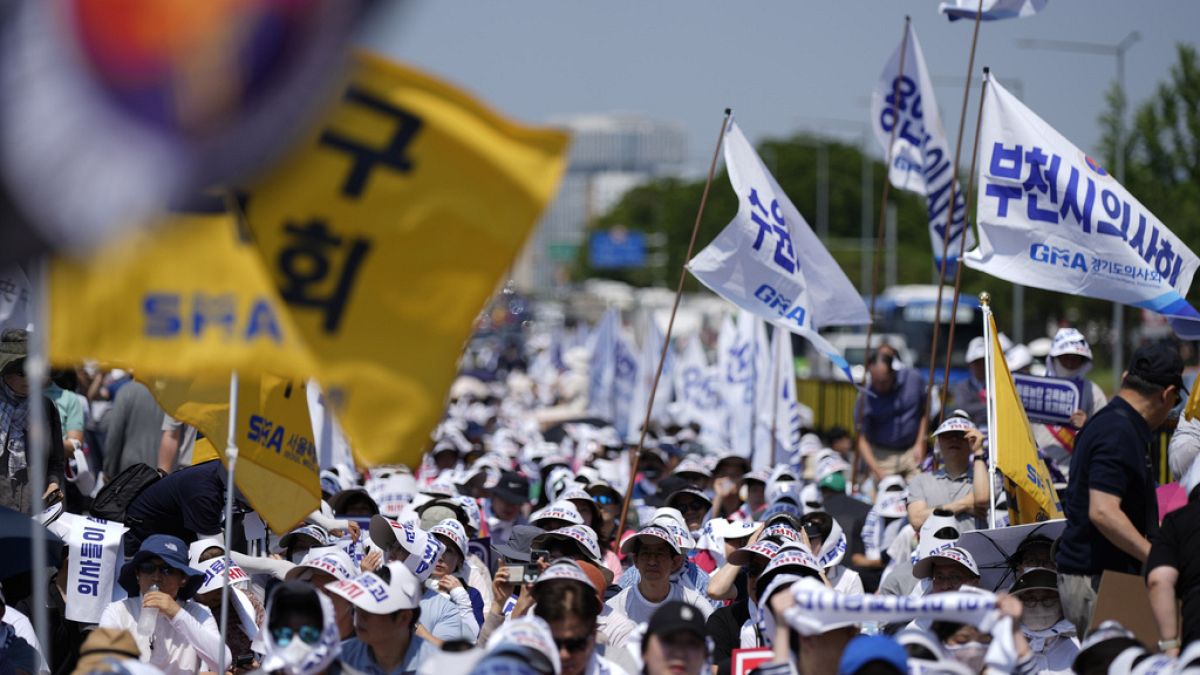In South Korea, a months-long protest against the government’s healthcare policies has escalated into a widespread strike. The strike, which began in February, has now gained momentum as doctors across the country voice their disagreement with the government’s decision to expand admissions to medical schools. President Yoon Suk Yeol has expressed his disappointment with the strike, calling it “very disappointing and unfortunate” during a televised cabinet meeting.
The doctors argue that increasing the number of medical school admissions will not solve the underlying issues within the healthcare system. They believe that the government should focus on addressing more pressing issues such as improving working conditions, increasing salaries, and providing better resources for healthcare facilities. The strike has gained significant attention and support from other healthcare workers and the general public, who are also concerned about the potential negative impact of the government’s policies on the country’s healthcare system.
The strike’s expansion highlights the growing frustration and dissatisfaction among healthcare professionals in South Korea. The strike has disrupted medical services across the country, leading to delays in patient care and creating concerns about the overall functioning of the healthcare system. As the strike continues to gain momentum, it is likely to put further pressure on the government to reconsider its healthcare policies and engage in meaningful dialogue with healthcare professionals to address their concerns.
The doctors involved in the strike have emphasized the importance of maintaining the quality of medical education and training in the country. They argue that increasing the number of medical school admissions without addressing the underlying issues within the healthcare system could have negative consequences for both patients and healthcare professionals. The strike has also brought attention to the broader issues facing the healthcare system in South Korea, including concerns about funding, staffing shortages, and the overall quality of care provided to patients.
President Yoon Suk Yeol’s response to the strike has further exacerbated tensions between the government and healthcare professionals. His dismissal of the strike as “very disappointing and unfortunate” has been met with criticism from the medical community and the general public, who view his response as dismissive of their concerns. The strike is likely to continue until the government takes concrete steps to address the demands of healthcare professionals and engage in meaningful dialogue to find solutions that benefit both healthcare workers and patients.
In conclusion, the ongoing strike in South Korea underscores the deep-seated issues within the country’s healthcare system. Healthcare professionals are calling for meaningful reforms that prioritize improving working conditions, increasing salaries, and providing better resources for healthcare facilities. The strike has disrupted medical services and garnered significant support from other healthcare workers and the general public. It is imperative for the government to engage in meaningful dialogue with healthcare professionals to address their concerns and work towards a sustainable solution that benefits both healthcare workers and patients.











